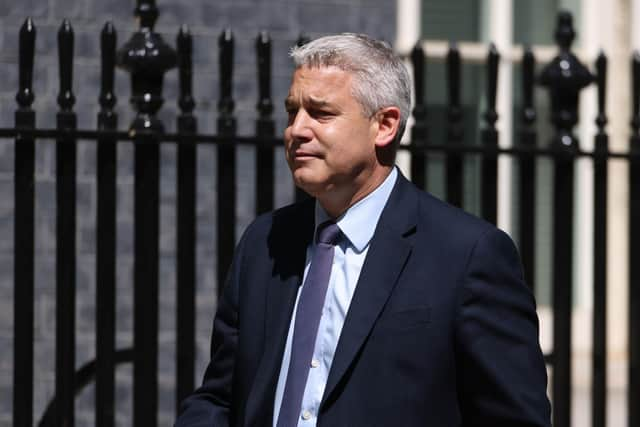Government criticised by Northumberland Labour for long hospital waiting times
and live on Freeview channel 276
Steve Barclay was appointed as the Government’s health boss following the resignation of Sajid Javid who had only been in post for a little over a year, replacing Matt Hancock.
Northumberland Labour say there has been no improvement in hospital waiting lists and deputy leader Liz Simpson has called on the Government to put in the necessary investment.
Advertisement
Hide AdAdvertisement
Hide AdShe said: “Even before the pandemic, NHS waiting lists and waiting times for planned procedures and treatment were going up.


“It’s a crying shame really because, under Labour, waiting times were never lower and waiting lists were never shorter. It was hard work to get there and our local NHS organisations, I know, worked tirelessly to achieve it. But it takes work to keep it there.
“The Conservative Government were happy to let things slip and patients have paid the price. Even changes of health secretary have made absolutely no difference. They either make things improve or they don’t want to.
“When people are waiting for treatment their lives go into limbo and their condition can get worse while they’re waiting. This is why Labour wants to see a return to short waiting lists and low waiting times. It’s what people need and deserve.”
Advertisement
Hide AdAdvertisement
Hide AdAccording to the British Medical Association, the number of people on the waiting list for treatment stood at 6.48 million as of April. At the start of the pandemic in March 2020, that figure was 4.24 million.
Waiting times have also increased significantly – the total number of patients waiting over 18 weeks for treatment now stands at 2.48 million, while 323,093 patients had been waiting over one year for treatment.
However, Northumbria Healthcare NHS Foundation Trust has some of the best performance in the country. Up to the end of April, the trust had just 35 patients waiting more than a year.
A Trust spokesperson said: “The commitment and dedication of our teams have resulted us in having among the lowest waiting times in the country and we continue to work extremely hard to clear the small backlog of patients that have been waiting for treatment or a procedure for more than 52 weeks.
Advertisement
Hide AdAdvertisement
Hide Ad"This currently stands at two patients, who both have planned dates. The latest national figures also show that at the end of May, 92% of patients were waiting less than 25 weeks, with half seen in less than nine weeks.
“There are other reasons why a patient’s treatment may be delayed, including them being unable to have their procedure for medical reasons or if they are unable to or don’t attend appointments and we are trying to encourage our patients to take an appointment that is offered to them.”
The Government has said it and the NHS have a plan to tackle the backlog.
The plan includes eliminating waits of longer than a year for elective care by March 2025, aiming to eliminate waits of over 18 months by April 2023 and making sure that three quarters of patients who have been urgently referred by their GP for suspected cancer will be diagnosed, or have cancer ruled out within 28 days.
Advertisement
Hide AdAdvertisement
Hide AdThe Government says it has also provided an extra £5.9bn of capital funding.
A spokeswoman for the Department of Health and Social Care said: “We’ve set out a plan to bust the Covid backlogs in health and care services backed by record funding over the next three years – to deliver the biggest catch-up programme in the NHS’s history.
“This includes rolling out new surgical hubs and up to 160 community diagnostic centres across the country – with over 90 already open and one million extra scans delivered.
“We are making good progress on cutting longest waiting times – with the number of patients waiting over two years for treatment falling by more than 80% since February – meaning thousands more people have now accessed vital operations and procedures.”